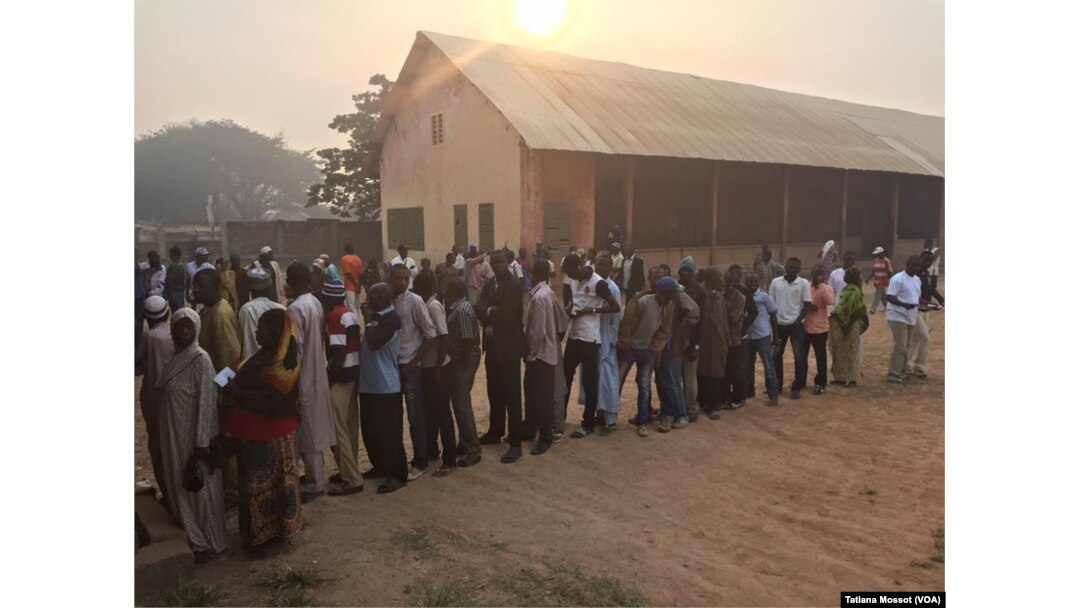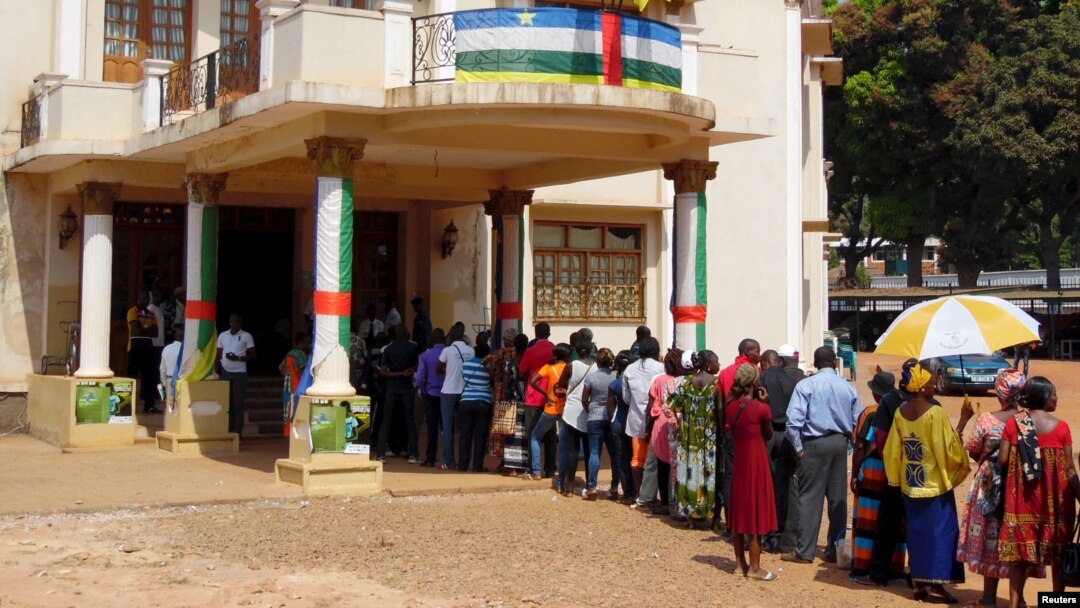Throngs of voters lined up at polling stations early Wednesday in the capital of the Central African Republic, ready to elect a new president and parliament who they hope will end years of conflict and division. However, conditions for the elections, originally scheduled for October, remain imperfect. The poll has been marred by widespread logistical problems, claims of vote-rigging, the post-election period might also be difficult to manage.
Expectations were high in Bangui ahead of Wednesday’s vote. Outside one polling station in the neighborhood of Castor, near the city center, impatient voters hoping to turn a page on the country’s three-year long conflict lined up before dawn.
Jean-Philipe Dora, a lawyer, said the population was ready for change.
Dora said over the last three years life has been suspended. People live in poverty. He said that is why we have to choose the right leader, someone who can reconcile and reunite the country and bring hope to the population.
Voters at some stations had to wait an extra hour or two, due to last-minute logistical problems.

Voters are waiting in Bangui for presidential vote, Bangui Dec. 30, 2015.
“We were supposed to open at 6 a.m.," said Bienvenue Ngouabangi, an electoral worker manning a polling station. He said because the material arrived late, the truck didn’t bring it here, so the polling station opened later. He said they will catch up. The electoral code said the station should be open for ten hours. Even if they have to stay open late, everyone will be able to vote.
The same determination to vote was seen during the constitutional referendum on December 13th. This time, however, much more is at stake.
The new government will inherit a country in which sectarian violence remains rife and rebels and militia groups have yet to be disarmed. It will also have to determine how to assist the estimated 450,000 Central Africans, most of them Muslims, who remain refugees outside of the country.
Another 460,000 are displaced within the country, among them 36,000 Muslims that are living in enclaves.
In a country still awash in weapons, tensions between the majority Christian population and the minority Muslim population remain a great concern.
Some minor problems with the voting were reported in Bangui Wednesday, but after some initial problems, the majority of voters were able to cast their ballots.
“Some logistical difficulties were expected," said Souleymane N’diaye, the head of the African Union Electoral Observation Mission. "After those were solved, the vote is going smoothly," he said.
A voter shows her voter card and her finger marked with indelible ink after voting at the school Gobongo the 4th arrondissement, Bangui, Dec. 30, 2015.
U.N. peacekeepers and local police protected polling stations in Bangui. Outside the capital, some polling stations are only reachable by boat or motorbike, making security and observation much more difficult.
Among the 30 presidential candidates, three are considered frontrunners. Two of them, Martin Ziguele and Anicet Dologuele, were prime ministers under late President Ange-Felix Patasse. The third, Karim Meckassoua, is a Muslim who served as a minister under President Francois Bozize until Bozize was ousted in 2013 by Seleka rebels.


